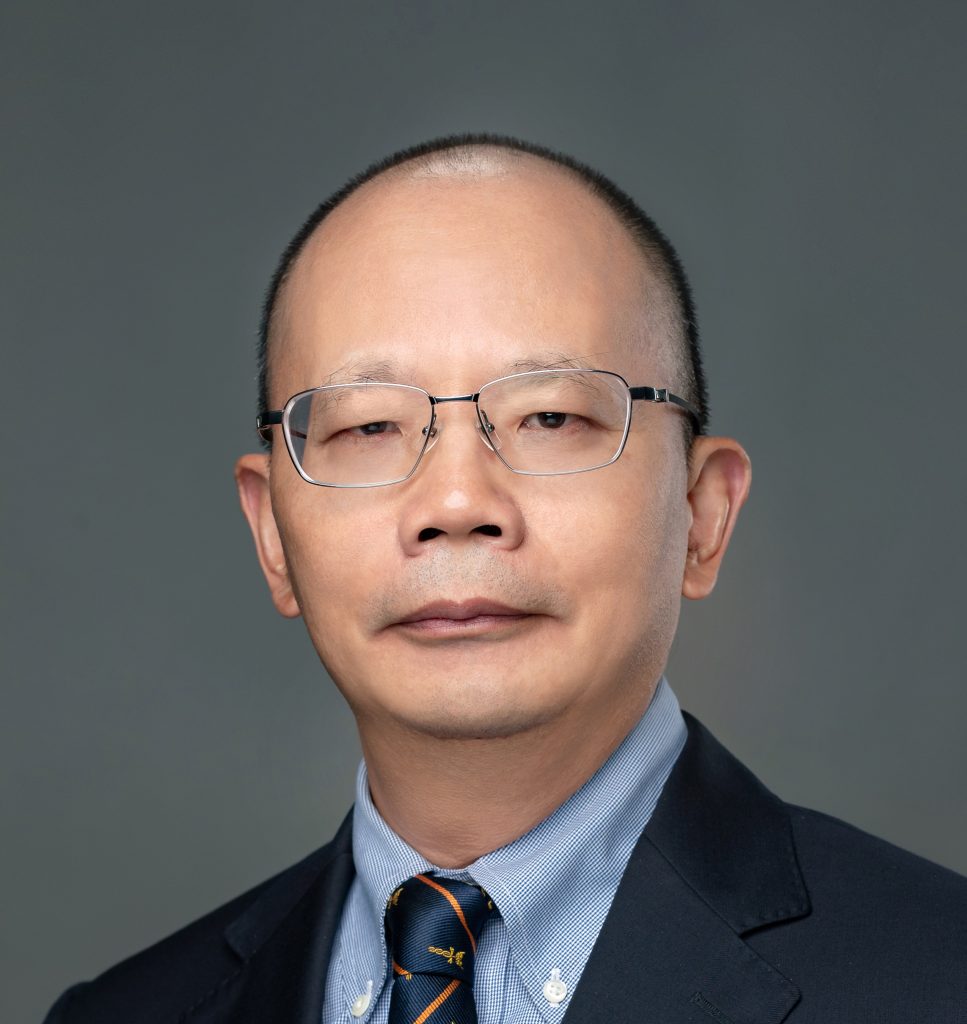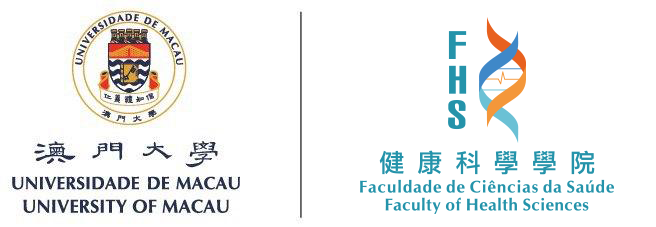Contact Information

Title
Associate Dean (Teaching), Chair Professor
Office
(Office) E12-4037
/ (Lab) E12-3078
Phone
(Office) +853 8822 4984
/ (Lab) +853 8822 9132
Fax
+853 8822 2314
Email
Consultation Hours
Mon, Wed 10:00 – 11:00
Research Team
| Name | Position | Office | Phone | |
|---|---|---|---|---|
| Leng Kuan CHEONG | Research Assistant (Lab Representative) | E12-3038 | +853 8822 2079 | charliecheong@um.edu.mo |
| Zhiwei XU | UM Macao Post-doctoral Fellow | E12-3038 | +853 8822 2079 | zhiweixu@um.edu.mo |
| Mingzhu TANG | PhD Student | E12-3038 | +853 8822 2079 | |
| Dade RONG | PhD Student | E12-3038 | +853 8822 2079 | |
| Yiguan CHEN | PhD Student | E12-3038 | +853 8822 2079 | |
| Xiangzheng GAO | PhD Student | E12-3038 | +853 8822 2079 | |
| Liangliang GAO | PhD Student | E12-3038 | +853 8822 2079 | |
| Yuan GAO | PhD Student | |||
| Haimei TANG | PhD Student | |||
| Yichi ZHANG | PhD Student | |||
| Liming XIE | PhD Student | |||
| He ZHANG | PhD Student | |||
| Hanyi HE | PhD Student | |||
| Zhenqi YU | PhD Student | |||
| Yuheng QIN | PhD Student | |||
| Xiaoli SUN | PhD Student |
| Education | |
| PhD | National University of Singapore (1996) |
| MMed | Zhejiang Medical University, China (1988) |
| BMed | Zhejiang Medical University, China (1985) |
| Positions | |
| 07/2023 – Present | Associate Dean (Teaching), Faculty of Health Sciences, University of Macau |
| 01/2020 – Present | Chair Professor, Faculty of Health Sciences, University of Macau |
| 07/2016 – 12/2019 | Professor (tenured), Department of Physiology, Yong Loo Lin School of Medicine, National University of Singapore |
| 07/2007 – 06/2016 | Associate Professor (tenured), Department of Physiology/EPH, Yong Loo Lin School of Medicine, National University of Singapore |
| 12/2002 – 06/2007 | Assist Professor, Dept. of COFM, Yong Loo Lin School of Medicine, National University of Singapore |
| 04/2002 – 07/2003 | Exchange Scientist, National Cancer Institute (NCI), NIH, USA |
| 02/2001 – 11/2002 | Research Fellow, Dept. of COFM, Faculty of Medicine, National University of Singapore |
| 01/1996 – 01/2001 | Postdoc Research Fellow, Dept. of COFM, Faculty of Medicine, National University of Singapore |
| Research Interests |
|
| Representative Publications |
Recent representative publications (all as corresponding author):
|
| Full publications list |
| Awards | |
| 2019 | Yong Loo Lin School of Medicine Researcher of the Year Award-AY2017/2018 |
| 2019 | NUSMedicine Graduate Mentor of The Year (GRAMAY) Award 2019 |
| 2019 | Swee Liew-Wadsworth Research Award-Gold, Department of Physiology, NUS |
| 2018 | Swee Liew-Wadsworth Research Award-Gold, Department of Physiology, NUS |
| 2015 | Faculty Research Excellence Award, Yong Loo Lin School of Medicine, NUS |
| 2014 | Swee Liew-Wadsworth Research Award-Silver, Department of Physiology, NUS |
| 2013 | Swee Liew-Wadsworth Research Award-Gold, Department of Physiology, NUS |
| 2011 | Free Radical Biology and Medicine most cited paper 2006-2011 Award |
| 2011 | Japan Society for the Promotion of Science (JSPS)-NUS Fellowship |
| 2007 | Research Excellence Award, Yong Loo Lin School of Medicine, NUS |
| 2002 – 2003 | Oncology Fellowship, National Cancer Institute (NCI), NIH, USA |
| Professional Activities |
Editorial Board:
External Grant Review: As panel member:
As ad-hoc member
|
| Others |
| Prof Shen obtained his Bachelor of Medicine and Master of Medicine from Zhejiang Medical University, China in 1985 and 1988, respectively. He obtained his PhD from National University of Singapore (NUS) in 1996 and then received his postdoctoral training in NUS and in the National Cancer Institute (NCI), NIH, USA. He developed his academic career in NUS, from Assistant Professor (2003-2007) and Associate Professor with tenure (2007-2016) and full professor (from 2016). His main research interests include (i) Autophagy and lysosome in cancer cell biology, (ii) Mitophagy: novel mechanisms and biological importance in health and disease, and (iii) Cancer metabolism and targeted therapy. So far he has published more than 190 research papers and co-edited the book “Necrotic Cell Death” (Humana Press, 2014; with Peter Vandenabeele). (full publication list is available at ORCID: http://orcid.org/0000-0001-7369-5227. His work is also highly cited, with more than 23,000 total citation and H-Index at 76 (Google Scholar, Oct 2019). He currently serves as the Associate Editor for Autophagy, and Academic Editor for PLOS ONE and Supervising Editor for Aging Cell. He received NUS-School of Medicine Research Excellence Award (2007 and 2015), as well as the Researcher of the Year Award -2019, and the NUS Medicine Graduate Mentor of The Year (GRAMAY) Award-2019.沈漢明教授于1985年,1988年在浙江醫科大學取得學士、碩士學位,於1996年在新加坡國立大學獲得博士學位。主要研究領域為細胞自噬、線粒體自噬和腫瘤代謝學。迄今為止,他已在國際期刊發表SCI收錄論文190餘篇,被引用次數超過23,000次,H指數為76 (Google Scholar, 2019年10月)。目前擔任國際權威雜誌Autophagy副主編, Aging Cell和 PLOS ONE編委會委員。編輯出版了細胞壞死專著《Necrotic Cell Death》(Springer, 2014),並應邀在50餘次國際學術會議及50餘家國內外學術機構上做學術報告。其科研成果獲得新加坡國立大學醫學院Research Excellence Award (2007年和2015年)和Researcher of the Year Award (2019年)。此外,沈漢明教授多年來一直從事一線教學,具備豐富的教學經驗,為新加坡國立大學醫學院和理學院的本科生和研究生主講多門課程。已經訓練培養碩士、博士和博士後研究人員40餘人, 獲得新加坡國立大學醫學院最佳導師獎(NUS Medicine Graduate Mentor of The Year (GRAMAY) Award-2019)。 |

